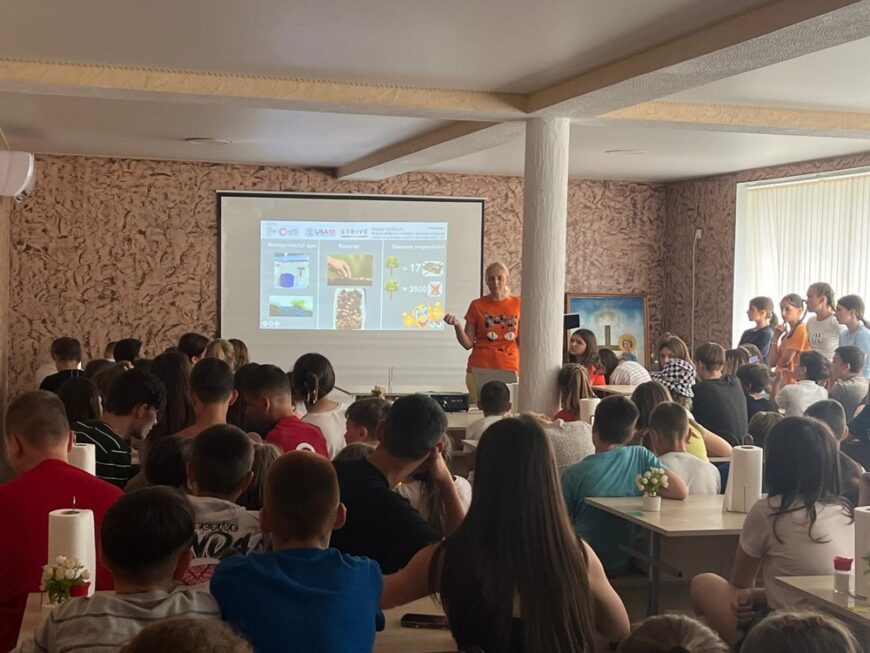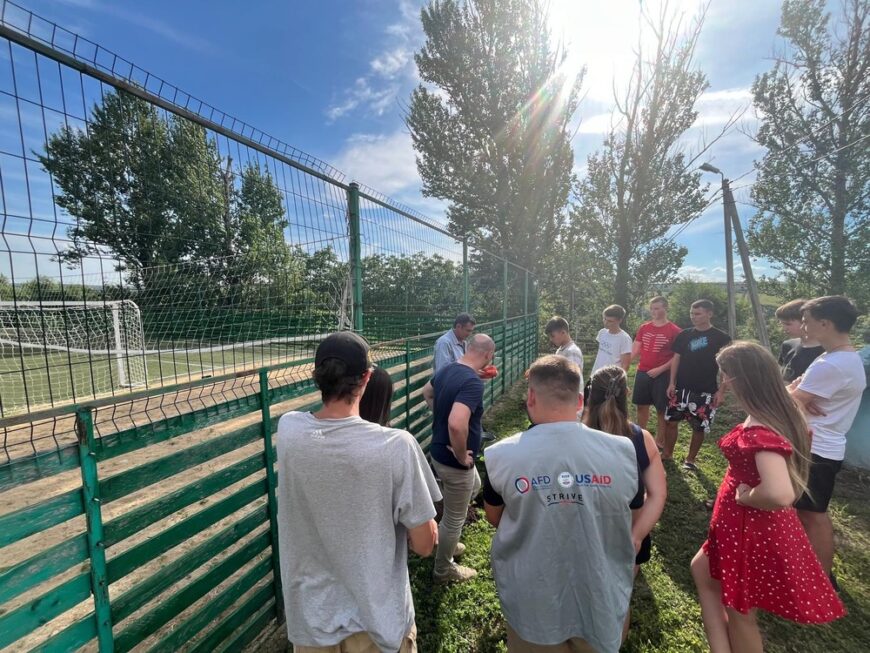Moldova is a small country in Eastern Europe that is exposed to a range of risks related to natural and man-made disasters, including heat waves, drought, deforestation, soil erosion and air pollution. These risks are compounded by economic stressors, including the significant influx of refugees caused by the war in Ukraine.
To enhance the capacity of local authorities, civil society, and farmers, and to effectively respond to the existent and potential disasters, Acted, IMPACT Initiatives and BSF joined their forces in early 2023 and created the STRIVE consortium.
STRIVE is a collaborative initiative comprising three international non-governmental organisations: Acted, IMPACT Initiatives, (and the Acted-IMPACT inter-agency REACH Initiative), and Bibliothèques sans frontières (BSF). Given the high disaster risk identified in the country, and particularly in the region of Anenii Noi (located in the south), the objective of the project is to enhance the capacity of local authorities and communities to enable them to cope with disasters and their related impact. The project is funded by the Agence Française de Développement (AFD) and benefits from complementary funding provided by USAID Bureau of Humanitarian Assistance (BHA), aiming to minimise the impact caused by natural disasters and enhancing the resilience of communities and ecosystems. Acted provided €20,000 in grants to five organisations working on Disaster Risk Reduction and three organisations working on Social Cohesion, Protection, and Economic Resilience activities. This support is also meant to promote a supportive environment where communities are enabled to withstand shocks and thrive in the face of adversity.
Tree of Life
One of the CSOs beneficiary of the grant is AO “Pomul Vieții” (which means Tree of Life in Romanian). Founded in 2008 by Aliona and Valeriu Andreiciuc, the organisation carries out agro-ecological projects with elements of social inclusion. In the last two years, they specialised in growing tree seedlings with a closed root system. With a nursery of more than 10,000 seedlings, most of which are grown from local seeds and adaptable to climate change, the ultimate scope of the organization is to contribute to the sustainable reforestation of the Republic of Moldova.
Within the project’s framework, Pomul Vieții launched a project focused on prevention and risk reduction of disasters, such as desertification and flooding in Beriozchi village. The plan was to implement sustainable practices across an area of five hectares, encompassing the planting of 3000 trees, the construction of siderates (a companion crop plant), terracing, mulching, and the promotion of biodiversity. Complementing the activity on the land, eight training sessions on disaster risk reduction (DRR) took place with the participation of 418 people, including 348 children from Anenii Noi schools.

Impact of the project
The project was planned to have considerable effects in both the immediate and extended future.
The short-term outcomes include the successful completion of the fencing of the area, the creation of berms, and the planting of 3,000 trees, which collectively facilitate the rapid recovery of the ecosystem. These interventions have contributed in different ways to the enhancement of the microclimate of the site, particularly through the establishment of wind barriers, the protection against soil erosion, and the prevention of desertification.
More than 400 individuals, including both youths and adults, received informal training in the prevention of human-induced disasters, acquiring in-depth knowledge regarding the construction of sustainable ecosystems and illustrative examples of sustainable practices.
The long-term outcomes include the restoration of the forest surrounding the area of implementation, which contributes to an increase in biodiversity and the enhancement of favourable conditions for the existent ecosystems. It is foreseen that in the future, the planted trees will be part of the wider regional conservation network, namely fulfilling the functions of carbon capture and improving the quality of air and water.
Future prospect
To ensure the long-term sustainability of the project, Pomul Vieții has entered a five-year contract with the Anenii Noi Municipality, under which an area of 15 hectares has been allocated for tree planting, with the possibility of expansion.
The organisation, as per its mandate, will also ensure the ongoing maintenance of the trees already planted to facilitate their long-term development. Additional financial support will be needed to ensure the scalability of the project, as well as co-operation with various partners and government agencies to further expand and sustain ecosystem initiatives, particularly in view of planting trees on a further 10 hectares of the allocated land, aligned to the Government’s 2026 forest creation programme.

The project activities were conducted in accordance with the principles of sustainable development and in close cooperation with local communities. This approach ensures the alignment of the actions to the real needs of the area, contributing to the prevention of desertification and flooding, the restoration of the ecosystem, and the creation of a more sustainable environment.
Acted continues to engage in disaster preparedness related activities related and plan to extend this kind of operations to other regions of Moldova.